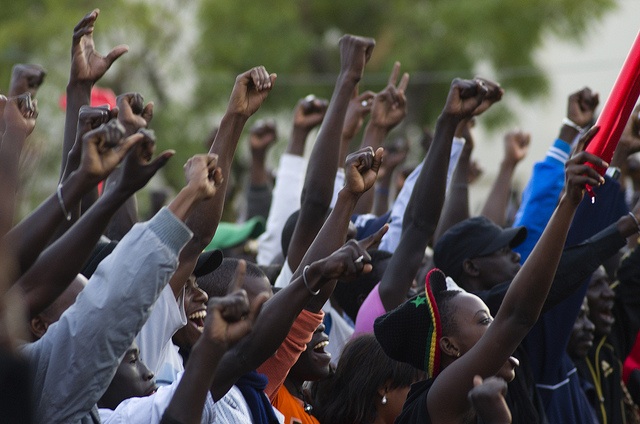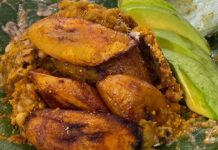To answer this question, a clear and concise definition of democracy demands our attention. The essence of this age-old question boils down to this: what is to be deemed the will of the community that is not unanimous?
In communities that act by voting, the will belongs to the majority. But is this the only method that has been found for determining the will of the people?
African history serves a great deal of documentation on several practices that were implemented in diverse communities to reach something more akin to this will.
Before we describe how African philosophers, politicians and priests tackled this issue and prescribed a course for their communities, we need to understand at first hand democracy, as a rule of the Majority, as opposed to Monarchy, which is the rule of One, and to Oligarchy, which is the rule of the Few, i.e. of a class privileged either by birth or by property.
Thus democracy has even come to be taken as denoting in practice, for example, among the Ayn Rand Republicans in the USA, that form of government in which the poorer class, always the more numerous, do in fact rule; and the term ‘Demos’ has often been used to describe not the whole but the poorer class as distinguished from the wealthier and much smaller classes.
But Europeans and largely Democrats in the USA have come to use it to describe what we now call ‘the masses’ in contradistinction to ‘the classes’.
Although the word ‘democracy’ denote nothing more then a particular form of government, they have, particularly in the USA, Europe, Canada, and Australia, acquired attractive associations of a social and indeed almost a moral character.
That is possibly why the West has largely managed to convince its citizens to support acts of aggression in Africa, the Middle East, and Latin America. Democracy has therefore become the West’s new Holy Crusading Guide!
The adjective ‘democratic’ is now often used to describe a person of a simple and genial manner, a good-mixer, one who, whatever his wealth or status, makes no assumption of his ‘superiority’, and carefully keeps himself on the level of his poorer or less eminent neighbors.
There are many American writers who have described certain monarchs as ‘democratic kings,’ perhaps when it has been necessary for ascribing American spheres of influence. Others in the South of the USA have even gone as far as surmise that the Slave South was ‘democratic’.
That attitude has yet to be lost among today’s Liberals in the Democratic Party of the USA. In the painfully slow pace towards the integration of African Americans into the mainstream of American society after Segregation, ‘democrats’ who are often supported by the African American ‘masses,’ continue to insist that America is ‘the model of democracy for the world,’ while still acknowledging that African Americans have by and large been banished to the outskirts of the confines of American democracy.
Hence democracy as the rule of the majority can also be problematic. When we come to apply it, or indeed any broad and simple definition, to concrete cases, many questions arise.
What is meant by the term ‘community’? Does it include all the inhabitants of a given area or those who only possess full civic rights, the so-called ‘qualified citizens’?
Could a community such as South Carolina in the 1800s, or the Transvaal in 1950s, in which the majority of the inhabitants, because they were African, were excluded from the electoral suffrage, be deemed a democracy then, in respect of its vesting political power in the majority of qualified citizens, the ‘qualified’ being all or nearly all European?
Or if the electoral suffrage, instead of being possessed by all the adult, or adult male, citizens, is restricted to those who can read and write, or those who possess some amount of property, or pay some direct tax, however small, does that community thereby cease to be a democracy?
I might multiply instances, but it is not worthwhile.
However, all these things make a difference to the truly popular character of a government. It is the facts that matter, not the name.
It ought not to be necessary nowadays to point out that there are plenty of republics, which are not democracies, and some monarchies, like those of Norway and Sweden, which are. Why spend time on what is a question of words?
African monarchies, studied in the African historical context, with an African sensibility, reveal more instances of democratic Africa than the Greeks, and Europe or the America’s put together, can match.
There have been many Kingdoms in Africa, since Nubia, Kemet and more recently Ghana, where the will of the whole people prevailed in all important matters recorded to our knowledge, even if it was some retarding influences to overcome, or was legally required to act for some purposes in some specially provided manner, and those should be considered Democracies.
It is important nevertheless to be wary of our ardour so as not to overestimate the beneficial effects of the change we want to see in Africa, because we may be forgetting that the faults we denounce today, being rooted in human weakness, may emerge afresh in other forms. We should not be so struck by the evils we see today that we neglect those from which we have not yet suffered.
But Democracy is supposed to be the product and the guardian both of Equality and of Liberty, both of which African tradition vehemently enforced, perhaps, to its own detriment. And democracy is so consecrated by its relationship to both of these precious possessions as to be almost above criticism. This is the ‘Holy Trinity’ in the strict religious sense of Maat.
African historicity hence, shows, no doubt, how the three have been intimately connected. But, the coming of Europeans to Africa begun a separation never before fathomed in theory and in practice, continuing still today, with a weird sense of American and European democracy.
We as Africans, and people of African origin, must begin to think of the African Past with the keenness of interest as if it were the African Present, and of the African Present with the same coolness of reflection as if it were the African Past. Then we need to rise again and establish the Free World that Africa had always been before Europeans first docked their boats on its shores.










